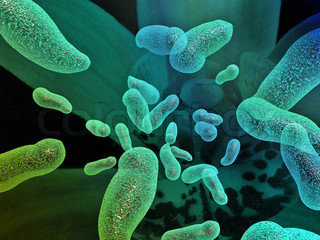Bioengineered bacteria for drug delivery
Lactic acid bacteria will be used to treat chronic bowel disease. The bacteria act as carriers of medicine.

The system is a kind of FedEx in miniature where the lactic acid bacterium act as the courier, the package that is delivered is a drug, and the receiver is a specific site in the body.
Scientists from Aarhus University are leading a project to develop the system so that lactic acid bacteria can be used to deliver drugs directly to the intestinal cells to combat the chronic inflammatory bowel disease called Crohn's disease more efficiently.
Lactic acid bacteria have previously been demonstrated to be suitable carriers of drugs. A certain protein kinase has a healing effect on intestinal cells. The present project will combine this knowledge to develop a treatment that is targeted and effective and reduces side effects.
The project was recently awarded 5.1M DKK from The Danish Council for Independent Research | Technology and Production and is a collaboration between Aarhus University, University College Cork in Ireland, Sygehus Sønderjylland in Aabenraa and Ferring Pharmaceuticals.
- The weakness of the current treatment methods is that drugs to some extent are degraded before they reaches the target site which in this case is the intestine . This reduces the efficiency of the treatment. If we can develop effective systems to deliver the drugs where it is needed, it will be a major breakthrough, says the leader of the project, senior scientist Stig Purup.
Oral ingestion is the predominant and most preferable route for drug delivery, but is not without problems. In order to be delivered to the relevant tissue in the body, the drug has to pass the gastrointestinal tract, where it risks being destroyed by the acidic environment in the stomach.
To overcome this, you can send the drug inside the lactic acid bacterium where it is protected from the acidic environment in the stomach. The harmless lactic acid bacterium, Lactococcus lactis (L. lactis), is non-colonizing and non-invasive. L. lactis is genetically modified to die when the mission is accomplished. This new method will be verified in a pig model of Crohn's disease.
- We specifically chose the pig as an animal model instead of rats because the digestive systems for pigs and humans are very similar, says Stig Purup.
The project starts 1 August 2013.
Further information: Senior scientist Stig Purup, Department of Animal Science, e-mail: stig.purup@agrsci.dk, telephone: +45 8715 7808, mobile: +45 2934 5955 or postdoc Marlene Fredborg, e-mail: marlene.fredborg@agrsci.dk, telephone: +45 8714 7812, mobile: +45 2047 8552.
